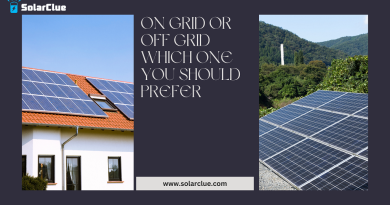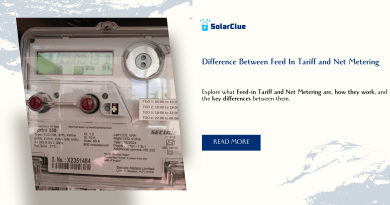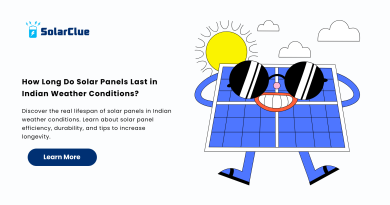Can I Plug A Solar Panel Into An Outlet?
Solar energy is a powerful and renewable resource that can significantly reduce electricity bills and environmental impact. However, understanding how to safely and effectively use solar panels is crucial. A common question that arises is, “Can I plug a solar panel into an outlet?” The short answer is no, but let’s dive deeper into why this is not only ineffective but also dangerous.
Table of Contents
- 1 The Limitations of Direct Connections to Solar Panels
- 1.1 The Role of Inverters and Charge Controllers
- 1.2 The Risks of Electrical Shock and Potential Damage
- 1.2.1 Proper Installation Procedures for Solar Panels
- 1.2.2 Alternative Methods for Using Solar Power
- 1.2.3 The Future of Solar Technology and Its Potential for Direct Power Delivery
- 1.2.4 Case Studies of Unsuccessful Direct Connections to Solar Panels
- 1.2.5 The Importance of Consulting a Professional for Solar Panel Installation
- 1.3 Frequently Asked Questions (FAQs)
- 1.4
The Limitations of Direct Connections to Solar Panels
Directly plugging a solar panel into an outlet is not a viable option for several reasons:
| Limitation | Description |
|---|---|
| DC vs. AC Power | Solar panels generate direct current (DC), while household outlets are designed for alternating current (AC). |
| Voltage and Amperage Mismatch | The voltage and current output of solar panels do not match the requirements of a standard electrical outlet. |
| Lack of Regulation | Without proper regulation, the power generated by solar panels can cause overloads and damage to electrical systems. |
The Role of Inverters and Charge Controllers
To safely and effectively use solar energy in a home or business, specific equipment is necessary:
| Component | Function |
|---|---|
| Inverter | Converts the DC power generated by solar panels into AC power, which can be used by household appliances and fed into the grid. |
| Charge Controller | Regulates the voltage and current coming from the solar panels to prevent overcharging of batteries in off-grid systems. |
Inverters are essential for converting the power generated by solar panels into a form that is compatible with your home’s electrical system. Charge controllers are critical in systems that include battery storage, ensuring that the batteries are charged safely and efficiently.
Safety Considerations for Direct Connections
Directly connecting solar panels to an outlet poses several safety risks:
| Risk | Description |
|---|---|
| Electrical Shock | Without proper equipment, there is a high risk of electrical shock, which can be fatal. |
| Fire Hazard | Incorrect wiring or overloads can lead to electrical fires, especially if the system is not properly grounded. |
| Damage to Appliances | Surges or voltage mismatches can damage sensitive electronics and appliances in your home. |
| System Overload | Plugging in a solar panel without an inverter can cause system overloads, potentially damaging your home’s electrical infrastructure. |
The Risks of Electrical Shock and Potential Damage
The dangers associated with improperly connecting solar panels cannot be overstated:
- Electrical Shock: Solar panels can generate significant amounts of electricity. Without proper insulation and grounding, this electricity can pose a serious risk of shock.
- Damage to Electrical Systems: Overloading circuits or feeding unregulated power into your home’s electrical system can damage wiring, outlets, and appliances.
- Fire Hazards: The combination of high voltage and improper wiring can lead to short circuits and fires, endangering lives and property.
Proper Installation Procedures for Solar Panels
Installing a solar panel system requires careful planning and adherence to safety protocols:
1. Site Assessment: Evaluate the location for adequate sunlight, proper orientation, and roof or ground space.
2. System Design: Design the system based on energy needs, available space, and budget.
3. Installation of Mounting and Panels: Securely mount the panels and connect them to the system.
4. Wiring and Inverter Connection: Properly wire the panels to the inverter, ensuring all connections are secure and meet electrical codes.
5. Grid Connection or Battery Integration: Connect the system to the grid or integrate battery storage for off-grid setups.
6. System Testing and Commissioning: Test the system to ensure it is functioning correctly and safely.
Alternative Methods for Using Solar Power
Instead of attempting to plug a solar panel directly into an outlet, consider these alternatives:
| Method | Description |
|---|---|
| Grid-Tied System | Solar panels are connected to the grid through an inverter, allowing you to use solar power and send excess energy back to the grid. |
| Off-Grid System | Solar panels charge batteries through a charge controller, with the inverter supplying power to your home. Ideal for remote locations. |
| Hybrid System | Combines grid-tied and off-grid systems, providing the flexibility of using solar power, grid power, and battery storage. |
The Future of Solar Technology and Its Potential for Direct Power Delivery
As solar technology advances, we may see more streamlined solutions for integrating solar power directly into home electrical systems:
- Microinverters: These devices convert DC to AC at the panel level, simplifying the installation process and improving safety.
- Plug-and-Play Solar Kits: Future products may offer easier and safer ways to connect solar panels to home electrical systems without extensive wiring or professional installation.
- Smart Solar Panels: Innovations in smart technology could allow for safer direct connections with built-in safety features.
Case Studies of Unsuccessful Direct Connections to Solar Panels
Learning from past mistakes is crucial:
- Case Study 1: A homeowner attempted to connect a solar panel directly to an outlet without an inverter, resulting in a significant electrical fire that caused extensive damage.
- Case Study 2: An off-grid enthusiast tried to use a direct connection to charge batteries, leading to battery overcharge, leakage, and eventual failure due to the lack of a charge controller.
The Importance of Consulting a Professional for Solar Panel Installation
Given the risks involved, professional installation is highly recommended:
| Benefit | Description |
|---|---|
| Safety Assurance | Professionals ensure that the system is installed according to safety standards, reducing the risk of accidents. |
| System Efficiency | A properly installed system operates at peak efficiency, maximizing energy production and savings. |
| Warranty Protection | Professional installation typically includes warranties that protect your investment. |
| Compliance with Regulations | Professionals ensure that your system complies with local building codes and electrical standards. |
Frequently Asked Questions (FAQs)
1: Can I plug a solar panel directly into an outlet?
A: No, plugging a solar panel directly into an outlet is unsafe and ineffective. Solar panels produce DC power, which needs to be converted to AC using an inverter before it can be used in your home.
2: What are the risks of directly connecting a solar panel to an outlet?
A: Risks include electrical shock, fire hazards, damage to electrical systems, and potential harm to appliances due to improper voltage and current.
3: What equipment do I need to safely use solar panels in my home?
A: You need solar panels, an inverter, proper wiring, and possibly a charge controller if using battery storage. These components ensure safe and efficient power conversion and distribution.
4: Can I use a solar panel to charge batteries directly?
A: No, you should not charge batteries directly with a solar panel without a charge controller, as it can lead to overcharging and battery damage.
5: Why is professional installation recommended for solar panels?
A: Professional installation ensures that your system is safe, efficient, and compliant with local regulations, and it often includes warranties that protect your investment.
6: Are there any future technologies that might allow direct solar panel connections?
A: Emerging technologies like microinverters and smart solar panels may make it easier to integrate solar power directly into home systems, but safety and proper installation will always be paramount.
7: What are alternative methods for using solar power at home?
A: Consider grid-tied systems, off-grid setups with battery storage, or hybrid systems that combine both approaches to safely use solar power in your home.
8: What should I do if I want to install solar panels at home?
A: Consult a professional installer to assess your needs, design the system, and ensure it is installed safely and in compliance with regulations.
In conclusion, while the idea of simply plugging a solar panel into an outlet might seem appealing, it is not a safe or practical solution. Proper equipment, including inverters and charge controllers, is essential for converting and using solar power efficiently. Always consult a professional to ensure your solar panel system is installed correctly and safely.
Here at SolarClue®, we offer a smart, practical, and “beautiful” solution. You will be answered for all the questions related to Solar.
We provide all kinds of brands that are the Best Solar panels in India.
If you are the one who is planning for the solar power system. Don’t hesitate to contact our team!
Looking forward to empowering you with solar energy, just like hundreds of our other clients!



